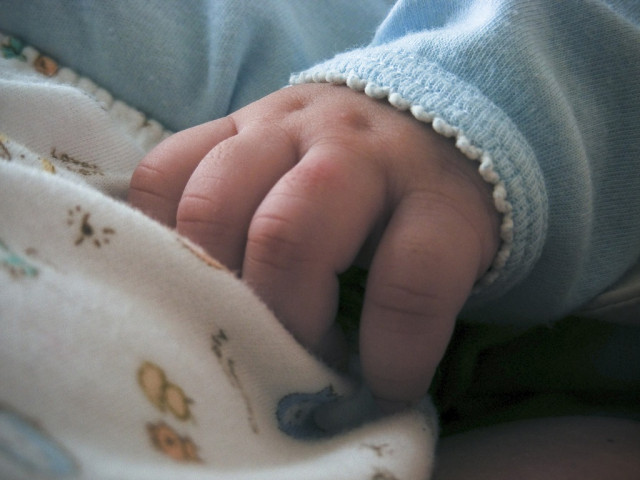Fighting malnutrition: Breastfeeding bill sent for provincial cabinet’s approval
In 2011, the bill was sent to the health department but got delayed without reason.

In 2011, the bill was sent to the health department but got delayed without reason. PHOTO: FILE
After a two and a half year delay, the Khyber-Pakhtunkhwa (K-P) Protection of Breastfeeding and Child Nutrition Bill has been sent to the provincial cabinet for a final nod.
Khyber Institute of Child Health Dean Professor Dr Gohar Rehman told The Express Tribune that after the 18th amendment, they started to draft a bill for breastfeeding. He said every year, 72 out of 1,000 children under the age of five die due to diarrhea, pneumonia or malnutrition in Pakistan. “Only 30% mothers breastfeed their children while the rest use bottled milk.”

In 2011, the bill was sent to the K-P Health Department but due to reasons unknown, it did not move forward. In 2013, the then health minister was briefed about the benefits of the bill. “He [health minister] showed his interest and approved the bill from the health department,” said Rehman.
He added by the end of 2013, the bill was sent to the law department which took five months to vet and was finally done so by April 5. “It has [now] been sent to the provincial cabinet for approval,” said Rehman.
He added if the six-chapter document, which is available with The Express Tribune, was properly implemented in the province many fatal diseases among infants could be avoided. K-P Health Sector Reforms Unit Chief Dr Shabina Raza confirmed that the bill has been approved by the law department and will be further discussed by the provincial cabinet. She claimed while many countries have placed a ban on the use of formula milk for infants, nearly 40 companies in Pakistan are still selling such products.
The Act generally deals with all matters that promote breastfeeding as an important measure to ensure safe and adequate nutrition for infants and young children. Its provisions draws parameters for the regulation of products or parties involved in the infant-feeding industry (formula and feeding bottles) as well as the healthcare sector (both private and public). Here are some highlights from the Act.
Administration
The Act will be extended to the whole province and the government will form an Infant Feeding Board to look over its implementation. The power and function of the board will be to receive reports of any violations and to recommend investigation of cases against manufactures, distributors or health workers who are suspected of violating the provisions of this Act.
Prohibitions
Companies that market alternative feeding products will be regulated and restricted by the Act’s provisions. Any marketing related to these products, specifically formula, will not be allowed to present the breastfeeding alternative as “equivalent to, or comparable with, or superior to breast milk.”
Anyone dealing with the sale of these products will not be allowed to offer medical professionals (directly or indirectly connected to a health care facility) incentives for the promotion of breast milk alternatives. All feeding-related products must be labeled in accordance with the provisions of the Breastfeeding Act.
Informational and educational materials
Any informational or educational material regarding infant feeding will be approved by the government board to ensure its accuracy and make sure it does not encourage bottle-feeding over breastfeeding.
The Act requires medical professionals to support breastfeeding, which means doctors must be aware of all provisions included in this legislature.
Registration of designated products and quality assurance
“No designated product shall be manufactured, sold or otherwise distributed in the province unless it is formulated industrially in accordance with the standards recommended by the Codex Alimentarius Commission and the Codex Code of Hygienic Practice for Foods for Infant and Children and in addition shall meet the applicable standards specified in this Act and rules,” the Act reads.
Penalties and procedures
If anyone, except a medical professional, was found in violation of the Act, the Infant Feeding Board has the authority “to recommend to the government to suspend or cancel his license for the practices of his profession or occupation or for the pursuit of his business.”
With regards to the industry, “any manufacturer or distributer who contravenes the provisions shall be punishable with imprisonment for a term which may extend to two years or with fine, which shall not be less than Rs50,000 or more than Rs500,000, or both.”
Published in The Express Tribune, April 10th, 2014.













COMMENTS
Comments are moderated and generally will be posted if they are on-topic and not abusive.
For more information, please see our Comments FAQ